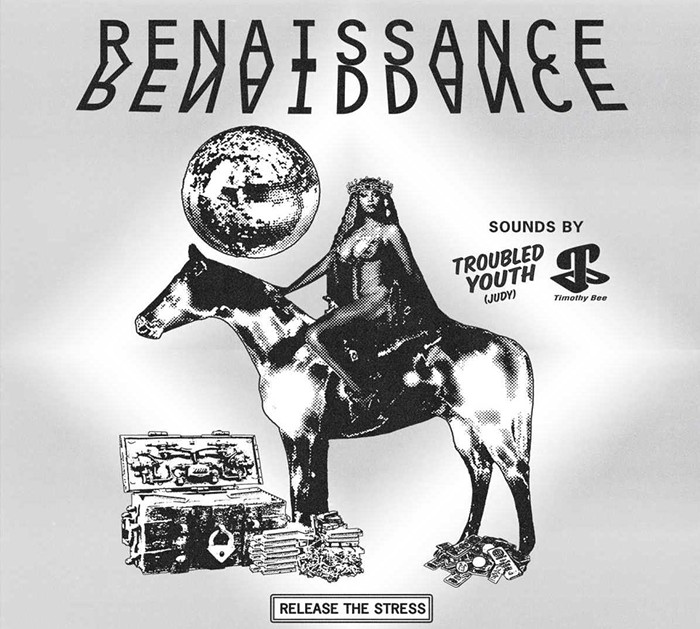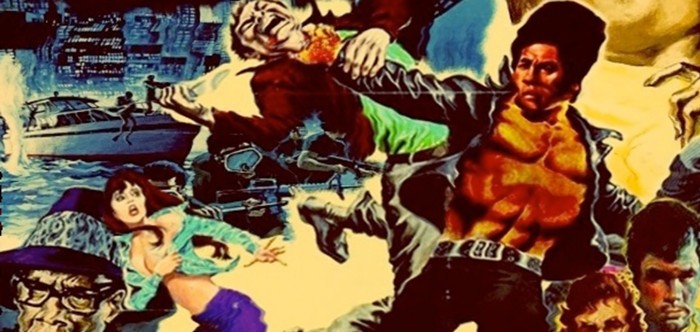
It’s not for lack of good source material. Beggars Banquet is often thought of as the first in a series of four “classic” Stones albums, although I think this overlooks the best of their previous efforts, much of which is every bit the equal of what came at the end of the ’60s and the beginning of the ’70s. But whereas superlative new boxed sets from the Beatles and the Kinks have dredged up a dizzying array of fantastic archival material, the bonus material on the 50th anniversary of Beggars Banquet is downright skimpy. The two-disc release—on both vinyl and CD—includes the album itself (of course), a bonus mono mix of “Sympathy for the Devil” on a 12-inch all to itself, a flexidisc containing a nine-minute telephone interview with Mick Jagger, and… well, that’s it. This could be fine, but the deluxe sticker price is not in line with a mere 15 minutes of bonus material that’s of questionable necessity to begin with.
If you can get past that stumbling block, the deluxe reissue of Beggars Banquet isn’t entirely without merit. For years, almost every copy of the album was mastered at the wrong speed—too slow, it turns out. This was corrected in 2002 when the Stones’ back catalog was overhauled and reissued, but if you’re still holding onto an original vinyl copy or a CD from the ’80s or ’90s, it’s likely you’ve only heard this album at a slightly slower speed than intended.
And this album at proper speed sounds very good indeed. The new vinyl transfer is—generally—clear and full, drawing an impressive amount of clarity from what has always been a slightly muddled, dark-sounding album. Certain tracks were built off of lo-fi cassette recordings (“Parachute Woman,” “Street Fighting Man”), while others relied on delicate acoustic instruments (“No Expectations”); here, the disparate productions are integrated into a seamless whole that doesn’t jar on the numerous transitions from raw to polished. “No Expectations” and “Street Fighting Man” are particular highlights, the former boasting a dimensional, you're-in-the-room sound and the latter sounding gloriously punchy and sweet. Even the generally wretched-sounding “Stray Cat Blues” sounds a lot better here.
The primary issue with the new vinyl version is a not-ignorable amount of surface noise in between each track. It’s sort of like a radio-static high-pitched squeak, and it seems like an unfortunate pressing problem with the disc itself (meaning that a cleaning of the record didn’t remove it). I can only assume the surface noise is also present during the music itself, although it only really bothered me during silent passages.
The album was recorded during a relatively stable period for the band. A disastrous and well-publicized 1967 drug bust was behind them, and the stripped-down roots rock that came into fashion in 1968 turned out to be a far better fit for the group than the waning psychedelia trend, which they'd struggled to incorporate on their previous full-length, the half-brilliant, half-flawed Their Satanic Majesties Request. But the Stones were already seeming to pick up on premonitions coming from the decade’s dark conclusion and the significant roles they themselves would play in it, perhaps sensing tragedy around the corner in the forms of the sudden, mysterious death of original Stones bandleader Brian Jones and the deadly fiasco that was Altamont.
The album’s opening track, “Sympathy for the Devil,” would have been enough to make Beggars Banquet a masterpiece all on its own—a genuinely dangerous-sounding rock tune inflected with a samba beat, a stinging guitar, and impish, incessant “woo-woo” chanting. By personifying the worst of human nature in the form of the folktale character of Satan, Mick Jagger reveals how superstitions and religions allow us to squirm out of culpability for our worst crimes.
But “Street Fighting Man” might be Beggars Banquet’s finest track, a call to revolution in the form of an acoustic broadside—only blown out, compressed, and augmented with non-western instruments like tambura, sitar, and shehnai to make something exotically modern-sounding. Its relentless, martial beat and sense of joyous desperation make it perhaps the definitive musical snapshot of the turmoil of 1968.
The rest of the album never quite reaches this level, although the gorgeous gotta-hit-the-road ballad “No Expectations” comes close. Less successful are the cornpone goof “Dear Doctor,” the not-quite-anthemic “Salt of the Earth” (they’d perfect this a year later with “You Can’t Always Get What You Want”), and the unseemly “Stray Cat Blues,” which rides an appealingly nasty groove but grows turgid over the course of four and a half minutes. Better is the psychedelic hangover of “Jigsaw Puzzle,” a Dylan-esque rant that turns into a wind-howling bad trip, and the remaining tracks—“Factory Girl,” “Prodigal Son,” and “Parachute Woman”—are pleasant acoustic ditties that found the Stones stripping down to essentials, a technique that would hugely benefit their songwriting in the coming years.
As a whole, however, Beggars Banquet was the most coherent, fully formed statement the Stones had made up to that point. And it should be said, in all fairness, that this 50th anniversary edition is an effective reminder of why this album was great in the first place. But if you’ve got any version of this album released in 2002 or later (sadly, there have been no all-analog transfers to vinyl this century; this edition uses high-resolution digital files as the source) you’ve already got Beggars Banquet at the correct speed and, most likely, sounding plenty fine. As for the rest of it? The mono mix of “Sympathy for the Devil”—which takes up an entire side of the bonus 12-inch, the other side being a worthless etching—already cropped up on the Stones' recent, massive mono box, and the Mick Jagger interview on the flexidisc is something even Stones diehards will likely not listen to more than once (a gracious but tired Jagger does less than 50 percent of the talking). With the dearth of worthwhile bonus material—no 7-inch mix of “Street Fighting Man,” for instance, or the 1968 single “Jumpin’ Jack Flash,” which was recorded during the Beggars Banquet sessions—and a slightly flawed vinyl presentation, there’s probably not enough here to justify the expense.


















